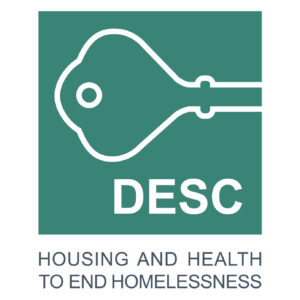Improving Success of Field-based Buprenorphine Inductions for Opioid Use Disorder Treatment

Grantee: Downtown Emergency Service Center
Timeframe: July 2024 – June 2026 | Amount: $400,000
- Year 1: July 2024 – June 2025. Amount: $200,000
- Year 2: July 2025 – June 2026. Amount: $200,000
The opioid epidemic continues to severely impact communities nationwide, including Seattle/King County. In 2023, King County EMS responded to 8,390 opioid overdoses, 1,113 of which were fatal—a 47% increase from the previous year. People experiencing homelessness made up 20% of these cases, reflecting their heightened vulnerability due to isolation and limited access to consistent treatment.
Downtown Emergency Service Center (DESC) serves individuals who are unhoused, in emergency shelters, or living in permanent supportive housing. Many clients face complex barriers to care, including behavioral health conditions, chronic medical issues, and disabilities. It’s estimated that 15–20% regularly use opioids and meet the criteria for opioid use disorder.
In Year 1, DESC launched a new 1.0 FTE Buprenorphine Induction RN in 2024 to provide daily support for clients transitioning from fentanyl to buprenorphine—a critical step that reduces withdrawal symptoms, increases treatment engagement, and prevents overdose. The program is low barrier, offering walk-in intakes and telehealth support, and has experienced strong demand from clients.
In Year 2, DESC will continue to employ one full-time Induction Specialist (RN) on its opioid treatment team to assist clients through the transition to buprenorphine and improve successful inductions. DESC will build on Year 1’s success and continue to refine and expand the program.
ABOUT OUR GRANTEE
Downtown Emergency Service Center
“Our vision is a community where no person is abandoned, ignored, or experiencing homelessness.
DESC helps people with the complex needs of homelessness, substance use disorders, and serious mental illness achieve their highest potential for health and well-being through comprehensive services, treatment, and housing.”